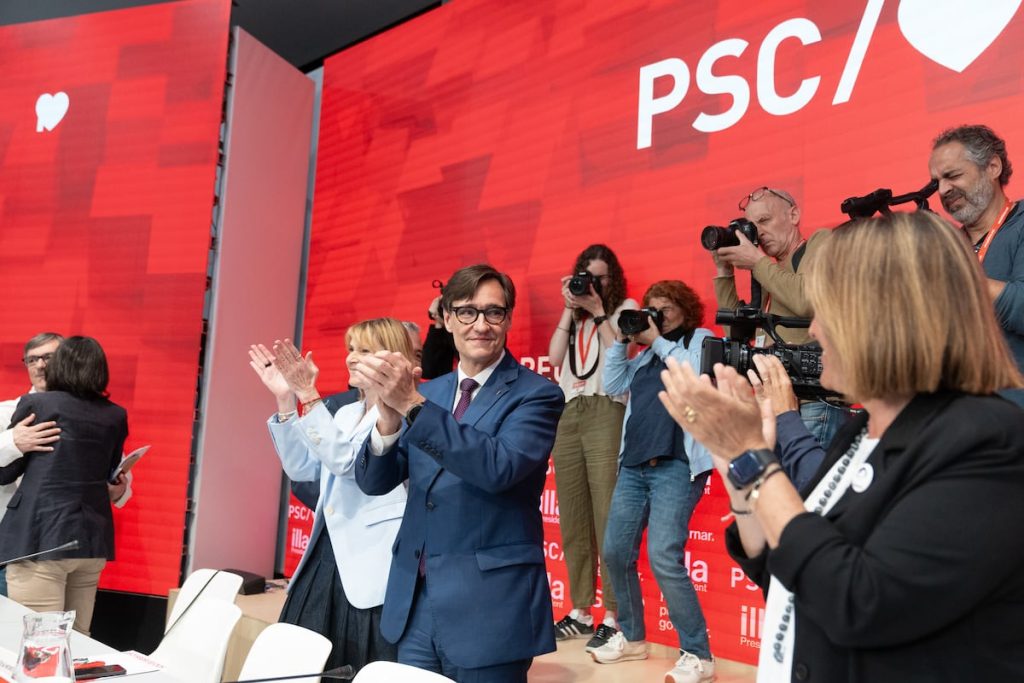The Catalan independence process came to an end in October 2017 when Article 155 was applied. The outcome of the Catalan elections on Sunday marks the “end of a period of separatist tensions,” according to Joaquim Coll. The results show a shift in the political landscape, with the PSC (Socialist Party of Catalonia) winning the most seats and votes for the first time. Salvador Illa is seen as the most likely candidate for the presidency. There was a high abstention rate, and support for independence has dropped to 43.2%, while anti-independence forces have increased to 52.7%. The political spectrum in Catalonia includes extreme left and right-wing parties, as well as business-friendly and social democratic projects. There is a sense of frustration with leaders who promised an unrealistic secession, causing tensions and economic hardship, resulting in a lost decade.
The two major Spanish parties, the PSOE (Spanish Socialist Workers’ Party) and the PP (People’s Party), have had positive results in the Catalan elections. The PSC, a branch of the PSOE, achieved a significant victory, but it also masked a shift towards the PP. There is a potential for a left-wing government, but there is also a rise in support for the right-wing parties. Pedro Sánchez and his supporters see the election results as a success for the amnesty law. However, the decline in support for independence on June 23, coupled with the growth of the PP, cannot solely be attributed to the end of Ciudadanos and the strong performance of Vox. The impact of the amnesty law on the moral virtue remains debated, with critics questioning the corrupt nature of granting impunity in exchange for political support.
The majority in the Catalan parliament is against independence, but there are differing views within this stance. Illa, a moderate and dialogical politician, is less nationalist than previous leaders of the PSC. However, there are still controversial policies in place, such as language policies that exclude Spanish in public schools, tax advantages, and the devolution of powers. Some of these policies, especially language policies, go against diversity and benefit party elites more than their constituents. There is a hope that the end of this period of political tension does not lead to a regression into past conflicts and power struggles.
Overall, the Catalan elections have brought about a significant shift in the political landscape, with the PSC emerging as a leading force and the decline of support for independence. The results signal a desire for change and a rejection of divisive politics that have characterized the region in recent years. The future government in Catalonia will need to address these challenges and work towards fostering unity and cooperation among different political ideologies. As the region moves forward, it is crucial to learn from the mistakes of the past and strive towards building a more inclusive and prosperous society for all residents.


